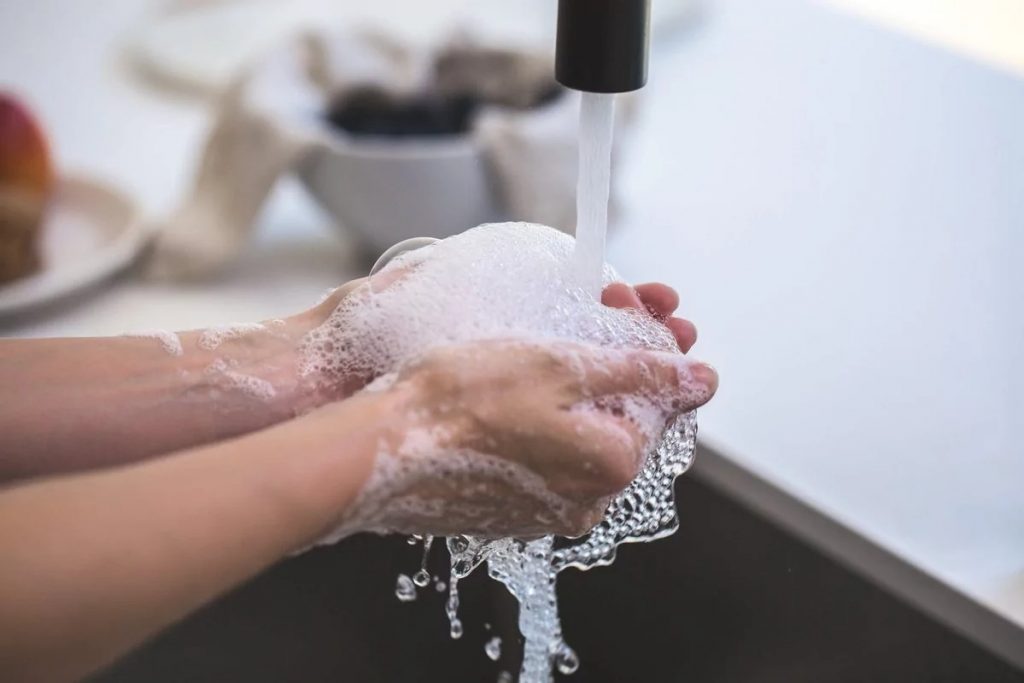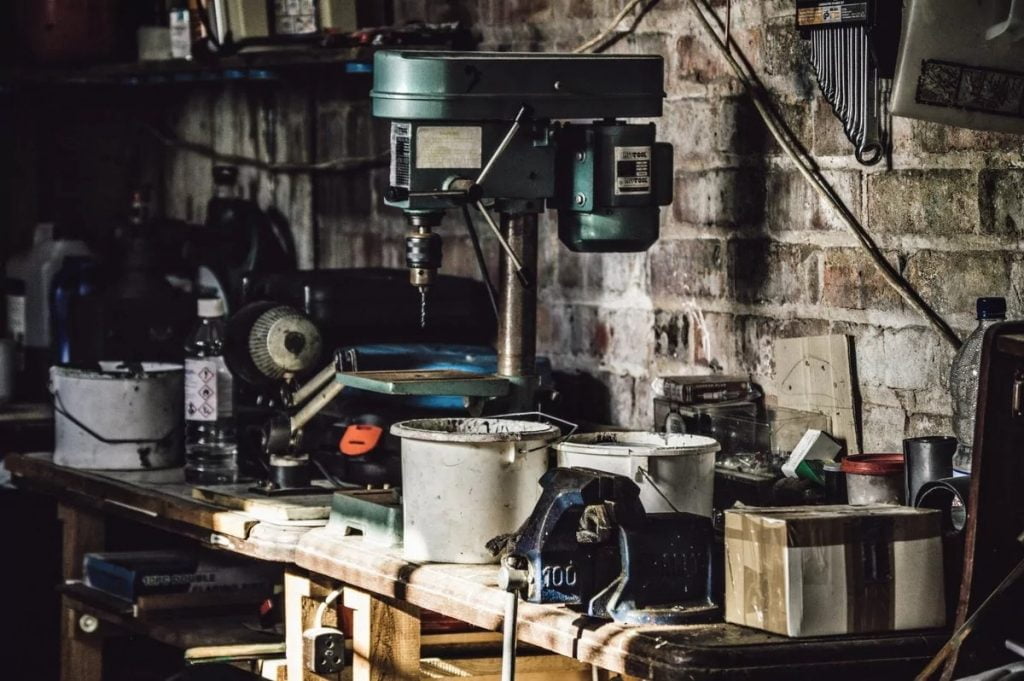They say nothing gold can stay, and isn’t that the truth. While we might be used to keeping an eye on the expiry date for our groceries, or swapping out the batteries on our fire alarms, there are plenty of other common household items that can go bad on you without you realizing it.
Let’s take a quick trip through the average home and check out a few of the most likely offenders.
In the closet:
Fire extinguishers: Make a point of checking the expiration date and pressure on your fire extinguishers on a yearly basis. Commercial fire extinguishers can have vastly different shelf lives depending on the size and brand. Some may only be good for five years, others could last as long as 15. In any case, it’s a good idea to check in on each fire extinguisher in your home every year to be sure.
Don’t just take the best before date at its word. Check the pressure gauge or testing button and be certain your extinguishers will be ready to go in the event of a fire. For bonus points, pick up your extinguishers and give them a shake every few months. The agitation will help keep the chemicals from clumping or settling in odd ways and prolong their effective lifespan.
Batteries: You can never have enough batteries, right? Well, almost. The good news is your typical, name brand, AA, AAA, or D-cell battery has a shelf life of several years, up to a whole decade. Lithium batters are even more long lived, lasting around 10-15 years on average. So why do you need to check on them? Because storage makes a big difference when it comes to battery life.
Ideally, batteries should be stored in a cool, dry place. Heat and moisture can significantly reduce the life span and performance of a set of batteries, so keeping them in a warm basement or a non-air conditioned garage year after year is not a great idea. You also need to be careful of how you store them. Batteries that are able to touch positive to negative side will drain each other (weird but true). Lithium batteries are ideally not stored at full capacity or empty capacity, but at a little less than half-charge for optimal performance. Most of all, batteries should be stored outside of any devices. If you don’t plan on using something for months on end, remove the batteries. Leaving them in an unused device can lead to corrosion and leakage issues. Not good.
In the bathroom:
Medication: You might not think pills would have expiration dates, but they do and it’s vitally important to pay attention to them. While some medication will just become less effective after their best before date, others can become harmful and dangerous. Old pain medication in particular can often have harmful side effects when significantly out of date. If you’ve ever had some pills left over after a visit to the dentist and decided to save them for an emergency, be sure to check the date before anyone takes them!
Hydrogen Peroxide: The old standby of many a first aid kit has a surprisingly short shelf life. Most bottles of peroxide should be replaced within a year of purchase, and once a bottle is opened, that life span plummets to about a month or so after first use. Once past its prime, hydrogen peroxide basically turns into water and totally loses its effectiveness as a disinfectant, so swap out the bottle in that old first aid kit you have under the sink.
Cosmetics: Make up can be expensive, which leads to two things – 1) Buying in bulk whenever there is a sale or a good deal available. And 2) Making sure to get every dab and brush out of a product as possible. Sadly, these two habits add up to trouble. Most cosmetics have an expiration date one way or another.
Lipsticks can and will lose their (literal) luster after being opened and exposed to air. Roughly, a tube of lip stick will last for a maximum of two years after opening before becoming tough, clumpy, and possibly even losing its shade. Other cosmetics like mascara can become straight up dangerous after too much time as passed. Bacteria will accumulate on a mascara brush just a few months after first use, possibly leading to infections. If you have mascara hanging around from a year or so, you might just want to kiss it goodbye.
The solution to these issues? Buy more make up, more often! See, every cloud has a silver lining.

The kitchen:
Cleaning products: Did you know that bleach has a best before date? Bleach loses the majority of its disinfectant power just a scant three months after opening. If you’re cleaning the counter tops with old bleach, they may look sparkly, but the bacteria you really want to get rid of will still be all over them.
Plenty of other cleaning products suffer from similar shelf life woes. As these products tend to be expensive, it’s not uncommon to stock up during a sale, but be sure to read the labels closely and gauge if you’ll actually get use out of them before filling up your cupboard.
Spices: Sadly, many common spices lose their flavor after prolonged storage. If you’re like me and often buy one particular spice for one particular recipe and then throw the rest in the spice rack for some distant future meal, you might want to review what you have and start fresh with anything that has been kicking around for awhile.
Wine and liquor: Wine can be fussy to store for long periods. Ideally, you’ll want it in a cool dark area with a low humidity. Light, heat, excessive cold, and air (from storing corked wine standing up instead of on its side) can all affect the flavor and experience of the vino. Surprisingly, you’ll also want to be sure to store corked wine separately from other pungent or aromatic foods. Strong scents have been known to permeate the cork and taint the flavor. Wine continues to age in the bottle, so you’ll want to be careful when saving a bottle for a “special occasion.” Be too selective, and you might just wait too long. Take it as a good excuse to celebrate and let yourself enjoy the nice things in life a little more often.
Liquor is much simpler by comparison – until you open that is. Contrary to common perception, once a liquor has been opened, it will begin to slowly deteriorate. After about a year, the taste and strength of the liquor will be compromised. If you open a bottle of the good stuff, be sure to enjoy it while it’s at its best.
In the garage or shed:

Extension cords and power strips: While extension cords and power strips don’t come with an expiration date per sae, they do have a limited lifetime use. These items are only designed to handle so much juice over the years and will eventually short out or lose effectiveness. A good rule of thumb is to look at the warranty and toss them out once that expires. Old cords and power strips that have been dragged through the lawn over and over, stashed in a cold garage or shed, or otherwise roughly handled are a greater risk and should replaced after a few years to prevent a fire hazard no matter what the warranty says.
Motor oil: Unopened motor oil should be good for about five years – but only under ideal conditions. In the likely scenario of storing it in a non-temperature controlled garage or shed that oscillates between freezing in the winter and sweltering in the summer, that shelf life can be easily cut in half. Once opened, even ideally stored motor oil should be used relatively quickly. If you see any separation, color change, or detect an odor from your oil, just toss it out and treat your vehicle to a fresh supply.
Paint: Paint is another one of those typical long term storage items you find in garages and sheds. Sadly, cold temperatures can make short work of an aging can of paint and ruin the both the color and texture of the paint, rendering it useless. If you’ve been storing opened cans between jobs, be sure to give each can a proper stir and inspection before trying to use it. As always, remember to dispose of paint safely and legally.
. . .
Staebler Insurance is a general insurance broker specializing in auto insurance, home insurance, small business, and commercial insurance. Staebler brokers proudly serve Kitchener, Waterloo, Cambridge, Guelph, Stratford, Listowel, Fergus, Elora, Wellington County, Perth County, Waterloo Region and southern Ontario. Click here to get started.














0 Comments